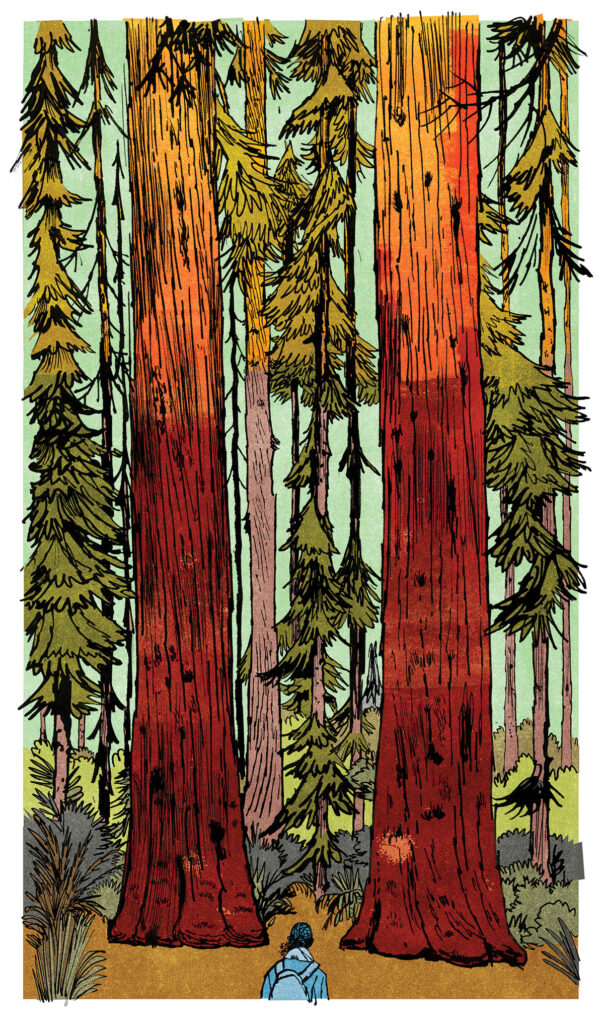
I am not the first person to consider a tree a friend. The Giving Tree, A Tree Grows in Brooklyn, and The Secret Life of Trees, just to name a few books, are testaments to the reciprocity between trees and humans. I recall a friend from Israel who would speak at length of his childhood, of how he would sit beneath a fig tree and be blessed by the shade of its foliage and by its fragrance—the sweetness of earth and fruit and sunlight. He was clearly moved by the memory. And I think of my friend the poet Naomi Shihab Nye, who has written about her Palestinian father longing to grow a fig tree in the back yard of every home the family lived in when she was growing up in the American South. The nationalities of the two men are not lost on me. The figs that each would have enjoyed grew on opposite sides of a boundary. I, too, am somewhere in that story: when I was a young girl, I lived briefly in war-torn Beirut.
It is simple to love a tree, to savor both its boughs and the fruit it offers. And though it doesn’t bear edible fruit, my tree friend is the coastal redwood, Sequoia sempervirens. It is tall and stately. Not one to offer low branches to climb, the redwood seems to have been made for a scale outside––and beyond––that of humans. Mature trees can reach a height of 300 feet and a width of 27 feet, and are protected by fire-resistant bark. The scent that rises when the sun hits that bark is nearly inextricable from everything around it: California bay, poison oak, nettles, blackberry. And yet, I think I can distinguish its signature in the blend. Warm. Earthy. Ample. When I walk through a redwood grove, as I sometimes do in the mountains near my home, I feel as though I am walking through a 2,000-year-old church, arches reaching up into the heavens.
Login to view the full article
Need to register?
Already a subscriber through The American Scholar?
Are you a Phi Beta Kappa sustaining member?
Register here
Want to subscribe?
Print subscribers get access to our entire website Subscribe here
You can also just subscribe to our website for $9.99. Subscribe here
true


